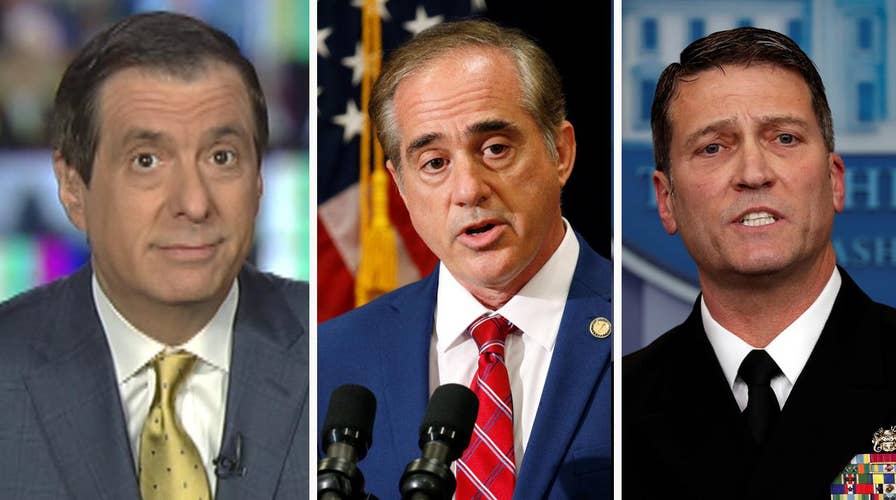Kurtz: Trump takes heat for promoting his doctor
'MediaBuzz' host Howard Kurtz weighs in on the media frenzy surrounding Trump replacing VA Secretary David Shulkin with his doctor Navy admiral Ronny Jackson.
This is how the firing of the VA secretary could have been framed:
David Shulkin had gotten himself in a heap of trouble. The inspector general had spanked him for a $120,000 trip to Europe, changing a pretext so his wife’s airfare would be covered, and improperly accepting Wimbledon tickets.
What’s more, Shulkin had gone to war with some of his top deputies, was increasingly isolated at the department, and the president concluded he had to make a change.
Now some of that information was included in the B matter of various stories, but the main media themes are:
More chaos at the White House!
And how dare Donald Trump replace him with his personal doctor?
Shulkin, as the New York Times noted, also generated bad publicity when he tried to salvage his job by warning about aides "trying to undermine the department from within."
Shulkin did rack up some accomplishments on the reform front. My main discomfort with the dismissal is that Trump let him twist in the wind for weeks—as he did with Rex Tillerson—while damaging leaks made clear he was on the way out. Of course, Shulkin could have seen the handwriting and resigned.
(And yes, it's ironic that Trump once proclaimed that he'd never have to use his signature "you're fired" line against Shulkin.)
Shulkin, a former hospital executive, fired back in a New York Times op-ed that called the atmosphere in Washington "toxic, chaotic, disrespectful and subversive." He complained that he had "been falsely accused of things by people who wanted me out of the way ... It should not be this hard to serve your country."
There was a policy dispute at the heart of this battle, with Shulkin resisting efforts to privatize more VA services, which he said was "aimed at rewarding select people and companies with profits, even if it undermines care for veterans." The counter-argument is that the overstretched VA system can't provide enough effective care, as we saw with the waiting-list scandal.
But if a Cabinet member disagrees with his boss on such a fundamental principle, his days are usually numbered.
Trump is taking some heat from the media and from critics for handing the job to Ronny Jackson, his White House physician. And it's fair to argue that the rear admiral has never managed much of anything, let alone a dysfunctional 360,000-person bureaucracy.
The hot take is that Trump wants officials with whom he's personally comfortable, and that Jackson won the job with his hourlong TV performance giving the president a clean bill of health. ("He has incredibly good genes, it's just the way God made him.") Jackson was so effusive he was mocked in an "SNL" skit.
If Jackson, despite his on-camera skills, can't tame the massive bureaucracy, or get people who can do so, then he'll prove the wrong fit for the job.
Running the VA is one of the most thankless jobs in the capital. And the White House has hardly been a smoothly functioning machine. But a president should be able to replace an underperforming and controversial Cabinet member without being faulted for chaotic management.





